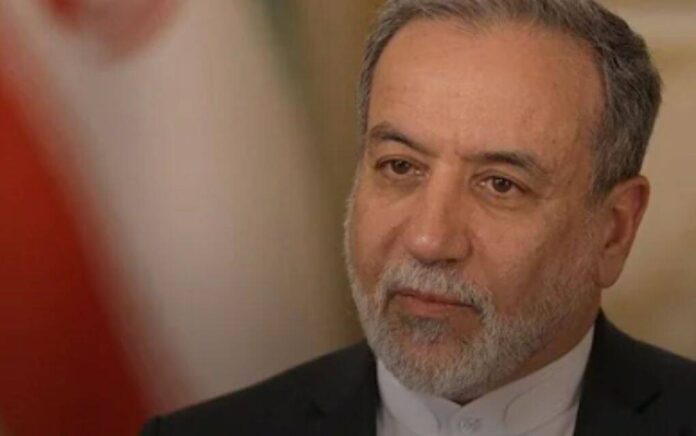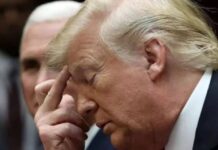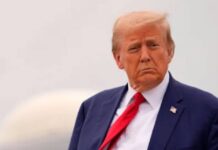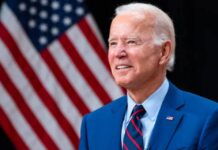
President Trump was hoping Iran would quiet down. But this is just the beginning.
Because Iran’s made a confession that Donald Trump and his allies are furious over.
Iran Signals Restraint After U.S. Strikes, But Nuclear Ambitions Persist Amid Global Concern
Iran has announced it will not escalate tensions further following U.S. military strikes on its nuclear facilities, according to Deputy Foreign Minister Majid Takht-Ravanchi. Speaking to NBC News, he stated that Iran’s retaliation for the U.S. attack on three nuclear enrichment sites last month was sufficient, signaling a pause in hostilities after a brief but intense conflict with Israel, a key U.S. ally. “We’ve already taken action,” Takht-Ravanchi said, emphasizing that Iran would refrain from further strikes unless provoked by additional U.S. aggression.
Following the U.S. bombardment, Iran launched missiles at the Al Udeid Air Base in Qatar, a U.S. military hub. Qatar’s defenses, forewarned by Iran, neutralized the attack, suggesting Iran’s intent to avoid conflict after its 12-day clash with Israel prompted U.S. intervention. President Donald Trump, in a post on Truth Social, acknowledged Iran’s advance notice, expressing relief that the move indicated de-escalation. Trump, who has vowed to resolve ongoing global conflicts in his second term, hailed the strikes as a major blow to Iran’s nuclear capabilities, claiming they “devastated” the targeted sites, despite reports suggesting the damage may only delay Iran’s program by months.
Iran has remained vague about the full extent of the damage, raising fears that its nuclear activities may now shift to more covert operations. The country has also suspended cooperation with the International Atomic Energy Agency, further obscuring its nuclear intentions. Takht-Ravanchi acknowledged the “significant” impact of the strikes but offered no specifics. Iran insists it safeguarded its uranium stockpiles before the attacks and remains steadfast in continuing its enrichment program, rejecting U.S. demands to abandon it. “Our stance on enrichment is unchanged,” Takht-Ravanchi told NBC. “Iran has the sovereign right to enrich uranium on its soil, provided it avoids weaponization.”
Concerns Over Iran’s Nuclear Program and the Necessity of U.S. Action
The U.S. strikes on Iran’s nuclear facilities in late 2024 were a calculated move by the Trump administration to curb Iran’s advancing nuclear capabilities, driven by longstanding concerns over its potential to develop nuclear weapons. Iran’s nuclear program, initiated decades ago, has been a persistent point of contention, with Western powers and Israel fearing its enrichment activities could lead to a nuclear arsenal. According to a 2024 report from the Arms Control Association, Iran had enriched uranium to near weapons-grade levels, raising alarms about its proximity to producing a nuclear bomb.
The Trump administration’s decision to strike was rooted in intelligence suggesting Iran was accelerating its nuclear efforts, particularly after withdrawing from the 2015 Joint Comprehensive Plan of Action (JCPOA) during Trump’s first term. The JCPOA had imposed strict limits on Iran’s enrichment in exchange for sanctions relief, but its collapse left Iran free to expand its program. By 2024, the International Atomic Energy Agency reported that Iran’s stockpile of enriched uranium far exceeded JCPOA limits, prompting fears of a breakout capability—the time needed to produce enough fissile material for a nuclear weapon.
Israel’s 12-day conflict with Iran in 2024, sparked by escalating regional tensions, provided the immediate catalyst for U.S. action. Israel, viewing Iran’s nuclear program as an existential threat, had long urged decisive measures. The U.S. strikes targeted key enrichment facilities, including those at Natanz and Fordow, which were central to Iran’s uranium processing. A 2024 analysis by the Center for Strategic and International Studies noted that these sites were critical to Iran’s ability to produce highly enriched uranium, justifying the U.S. intervention to prevent a nuclear-armed Iran.
The necessity of the strikes stemmed from the geopolitical risks of Iran’s nuclear ambitions. A nuclear-armed Iran could destabilize the Middle East, embolden its proxies like Hezbollah, and trigger a regional arms race, with Saudi Arabia and others potentially pursuing their own nuclear programs. The Foundation for Defense of Democracies warned in 2024 that Iran’s nuclear progress could also undermine U.S. credibility in deterring hostile regimes, necessitating a strong response to restore deterrence.
Critics of the strikes argue they risked escalating into a wider conflict, but the Trump administration’s approach appeared to balance force with restraint. By targeting only nuclear infrastructure and avoiding military or civilian targets, the U.S. aimed to disrupt Iran’s program without sparking all-out war. Iran’s measured retaliation—its forewarned missile strike on Al Udeid—further reduced the likelihood of immediate escalation, as both sides seemed wary of a prolonged conflict.
The strikes’ limited impact, however, raises concerns about their long-term efficacy. A 2024 report by the Brookings Institution suggested that while the attacks damaged Iran’s enrichment capacity, the program’s decentralized nature and Iran’s history of concealing facilities could allow it to recover quickly. Iran’s decision to halt IAEA cooperation, as noted by Reuters in December 2024, complicates international monitoring, potentially enabling covert nuclear advancements.
The Trump administration justified the strikes as a preemptive necessity to prevent Iran from crossing the nuclear threshold. Supporters, including analysts from the Heritage Foundation, argue that the action bought critical time to pursue diplomatic or economic pressure to constrain Iran’s program. The administration’s messaging, including Trump’s Truth Social posts, emphasized the strikes’ success in weakening Iran’s nuclear infrastructure, though independent assessments suggest the setback may be temporary.
The country’s leadership views its nuclear program as a matter of national sovereignty and a deterrent against perceived threats from the U.S. and Israel. A 2025 BBC analysis highlighted Iran’s narrative of resilience, noting its claim of safeguarding uranium stockpiles as evidence of strategic foresight.
The U.S. action also aimed to signal strength to both adversaries and allies. For Israel, the strikes reaffirmed U.S. commitment to countering Iran’s nuclear threat, strengthening the alliance after years of strained relations over the JCPOA. For regional powers like Saudi Arabia, the strikes served as a warning against pursuing independent nuclear programs, reinforcing U.S. leadership in non-proliferation efforts.
Looking ahead, the international community faces a complex challenge. Iran’s nuclear program, now potentially more opaque, continues to pose a global security risk. The Trump administration’s strikes, while tactically successful, have not resolved the underlying issue of Iran’s nuclear ambitions. Diplomatic efforts, possibly through renewed talks or stricter sanctions, will be critical to preventing further escalation, as noted in a 2025 Foreign Affairs article calling for a balanced approach of pressure and dialogue.



















